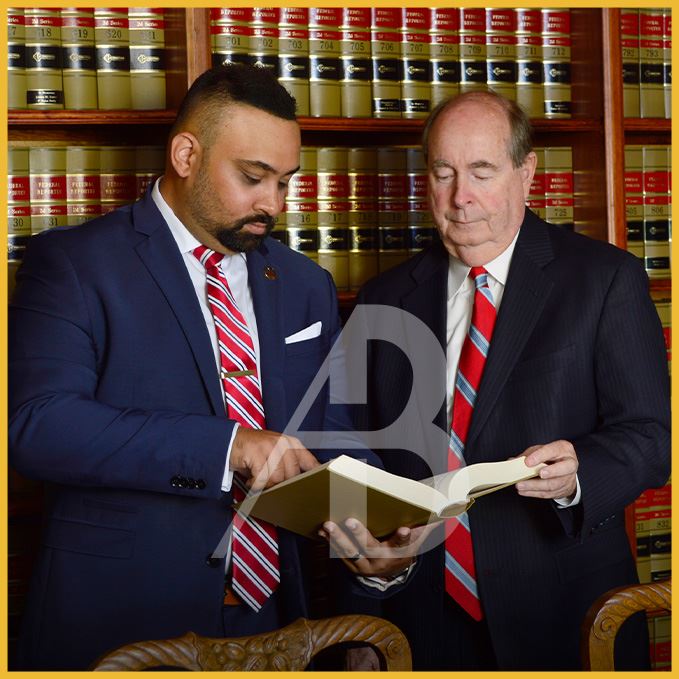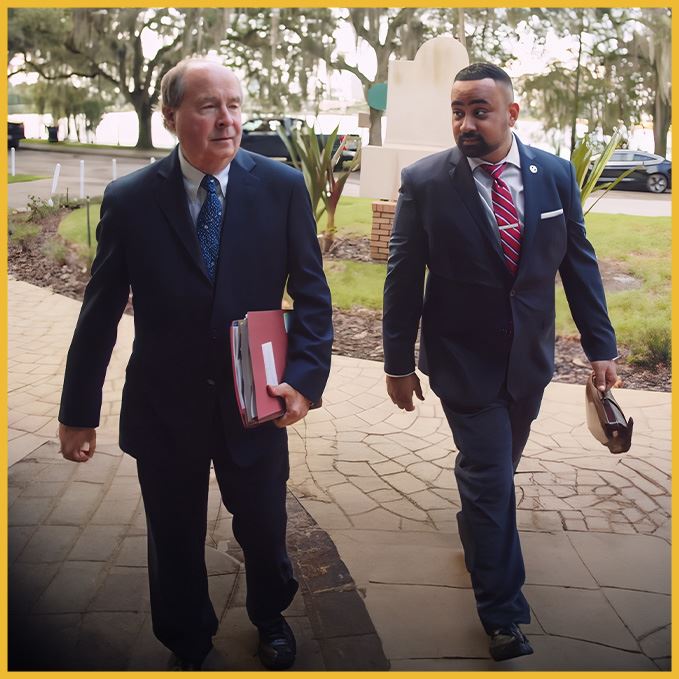Penalties for a Criminal Offense in FL
The penalties for a criminal offense in Florida vary depending on the severity of the crime, the specific statute violated, and any aggravating or mitigating factors involved. Florida has a comprehensive criminal code that outlines penalties for various offenses.
Here are some general categories of penalties for criminal offenses in Florida.
Felonies
Felonies are more serious crimes and are categorized into different degrees, such as first-degree, second-degree, and third-degree felonies.
- First-degree felony: Punishable by up to life imprisonment or a term of years and/or fines up to $10,000.
- Second-degree felony: Punishable by up to 15 years imprisonment and/or fines up to $10,000.
- Third-degree felony: Punishable by up to 5 years imprisonment and/or fines up to $5,000.
Misdemeanors
Misdemeanors are less serious offenses compared to felonies. They are also categorized into different degrees, such as first-degree and second-degree misdemeanors.
- First-degree misdemeanor: Punishable by up to 1 year imprisonment and/or fines up to $1,000.
- Second-degree misdemeanor: Punishable by up to 60 days imprisonment and/or fines up to $500.
Capital Felonies
Capital felonies are the most serious crimes and can result in the death penalty or life imprisonment without the possibility of parole.
Enhanced Penalties
Certain offenses carry enhanced penalties due to specific circumstances, such as:
- Habitual Offender: If a person has previous felony convictions, subsequent offenses may carry increased penalties.
- Firearm Enhancement: The use of a firearm during the commission of certain crimes can lead to enhanced penalties.
Florida's Criminal Process
Florida's criminal process follows a general framework similar to other jurisdictions in the United States. It involves several stages from arrest to trial.
Here's an overview of the typical criminal process in Florida:
- Arrest: The process begins with the arrest of an individual suspected of committing a crime. This can occur if a law enforcement officer witnesses a crime or if there is a warrant for the person's arrest. The arrested person is then taken into custody.
- Booking: After the arrest, the individual is taken to a law enforcement facility for booking. This involves recording personal information, taking fingerprints, and photographs. The suspect's belongings may be collected as evidence, and a background check is conducted.
- First Appearance: Within 24 hours of arrest, the suspect is brought before a judge for a first appearance. At this hearing, the judge informs the defendant of the charges, reviews the arrest report, determines if there is probable cause for the arrest, and considers bail.
- Bail: If the judge grants bail, the defendant may be released from custody upon payment of a set amount of money or on other conditions. Bail is often denied for serious offenses or if the defendant is considered a flight risk or a danger to the community.
- Arraignment: The next step is the arraignment, where the defendant appears in court to enter a plea (guilty, not guilty, or no contest). If the defendant pleads guilty or no contest, the case may proceed to sentencing. If a not guilty plea is entered, the case moves to the trial phase.
- Pretrial Proceedings: Pretrial proceedings involve various stages, including discovery, where both the prosecution and defense exchange evidence and information. There may be motions filed, such as motions to suppress evidence or dismiss the case. Plea negotiations can also occur during this phase.
- Trial: If the case proceeds to trial, the defendant has the right to a trial by jury, unless they choose a bench trial where the judge makes the final decision. The prosecution presents its evidence, and the defense has the opportunity to cross-examine witnesses and present its case. After both sides have presented their arguments, the jury (or judge) deliberates and reaches a verdict.
- Sentencing: If the defendant is found guilty, the judge imposes a sentence, which may include fines, probation, community service, imprisonment, or a combination of these. In some cases, the judge may offer alternative sentencing options such as drug treatment programs or rehabilitation.
- Appeals: Following a conviction, the defendant has the right to appeal the decision. The appeals process involves reviewing the trial proceedings for errors or constitutional violations. Appeals are typically heard by higher courts, such as the Florida District Courts of Appeal or the Florida Supreme Court.
Ways a Criminal Conviction Can Change Your Future
A criminal conviction can have far-reaching consequences that extend beyond legal penalties. It can severely impact employment prospects, as many employers conduct background checks and may be hesitant to hire someone with a criminal record. Housing can also be affected, with landlords often reluctant to rent to those with convictions. Personal relationships may suffer due to the stigma associated with a criminal record, leading to social isolation and strained family dynamics. Additionally, future opportunities in education or professional licensing can be limited. Understanding these potential impacts is crucial, and seeking expert legal advice can help mitigate some of these effects, ensuring that your rights are protected and your future is as secure as possible.
The Importance of Legal Representation
Navigating the complexities of the Florida criminal justice system can be daunting, especially when your future is at stake. At Ali & Blankner, we believe that every individual deserves to understand their rights and have a knowledgeable advocate by their side. Our team is committed to ensuring that you are fully informed throughout the legal process, empowering you to make the best decisions for your case.
The benefits of working with experienced attorneys:
- Informed Decision-Making: Knowing your rights allows you to make educated choices about your defense strategy and potential plea options.
- Protection Against Unlawful Practices: Awareness of your rights can help protect you from coercive tactics or unlawful treatment by law enforcement.
- Confidence in Your Defense: Understanding the legal landscape can bolster your confidence as you face charges, knowing that you have a skilled team advocating for your best interests.
- Access to Resources: A knowledgeable attorney can provide you with critical resources and support, ensuring you are well-prepared for every step of the process.
At Ali & Blankner, we prioritize your understanding and empowerment. Let us guide you through this challenging time—reach out for a consultation and take the first step toward reclaiming your future.
What Role Does a Criminal Defense Lawyer Play in Criminal Cases?
A criminal defense lawyer plays a crucial role in safeguarding the rights and interests of individuals accused of criminal offenses. From the moment a client is charged, the lawyer acts as a staunch advocate, ensuring that their client receives fair treatment under the law. One of the primary functions of a criminal defense lawyer is to develop a comprehensive defense strategy, tailored to the unique circumstances of the case. This involves scrutinizing evidence, identifying legal loopholes, and preparing a robust argument to counter the prosecution's claims.
Additionally, a defense lawyer is instrumental in negotiating plea deals with prosecutors, which can result in reduced charges or lighter sentences for the client. This negotiation skill is vital, especially in complex cases where going to trial may not be in the client’s best interest.
Should the case proceed to trial, the defense lawyer represents the client in court, presenting evidence and cross-examining witnesses to demonstrate reasonable doubt. Their expertise and familiarity with the legal system are indispensable in navigating its complexities and working towards the most favorable outcome. Ultimately, having skilled legal representation is essential for anyone facing criminal charges, as it significantly impacts the defense process and the client's future.
If you or a loved one has been arrested, even if you are innocent, speak with an experienced criminal attorney as soon as possible.
Commonly Asked Questions
What should I do if I am arrested?
If you are arrested, it is important to remain calm and to not resist arrest. You have the right to remain silent, and it is advisable to exercise that right until you can speak with a lawyer. Provide your identification and cooperate with law enforcement, but avoid answering any questions about the incident without legal representation.
What is the difference between a felony and a misdemeanor?
Felonies are more serious offenses that can lead to longer prison sentences and harsher penalties, while misdemeanors are less severe crimes that typically result in shorter jail time and lighter penalties. In Florida, felonies can be categorized into degrees, with first-degree felonies being the most serious.
Can I get my criminal record expunged?
In Florida, certain criminal records can be expunged or sealed under specific conditions. Generally, eligibility depends on the nature of the offense, whether you completed your sentence, and if you have any other pending charges. It's advisable to consult with a legal professional to understand your options.
What are my rights during the criminal process?
You have several rights during the criminal process, including the right to remain silent, the right to legal representation, the right to a fair trial, and the right to confront witnesses against you. Understanding these rights can help you navigate the legal system more effectively.
Helpful Resources






